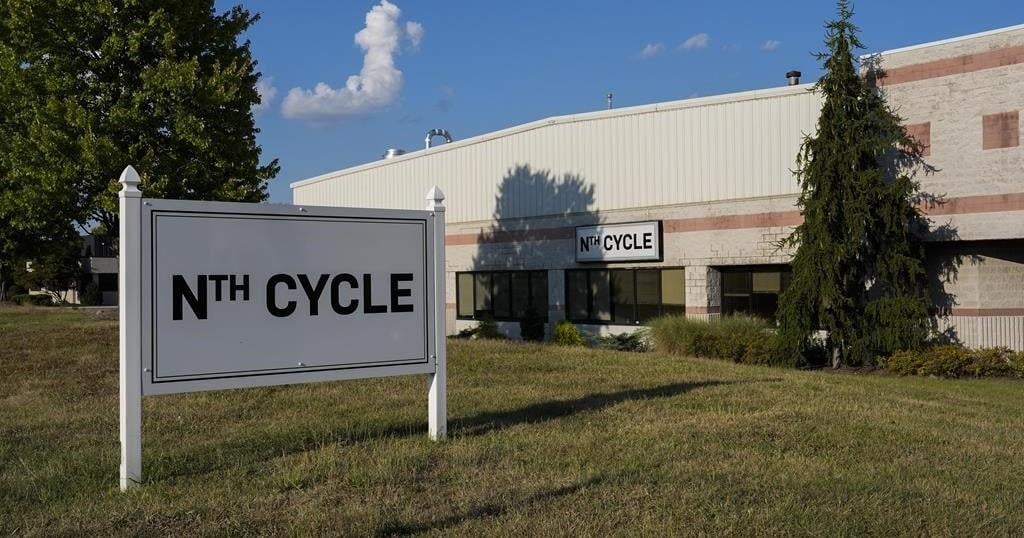In a step forward for efforts to acquire the metals crucial to addressing climate change, on Monday a new plant that can extract nickel and cobalt from scrap material opens in Fairfield, Ohio. The resulting metals will be used in new batteries and other clean energy markets.
Extracting metals out of old material avoids the environmental damage of open pit mining and prevents the metals from ending up in the landfill. Many see this as the future, even if it takes decades to become reality.
Climate change is largely caused by burning dirty fuels for two broad purposes: to make electricity and to move vehicles. Batteries can substitute for both much of the time, but this changeover is still in its infancy and the need for more minerals is great.
The metals refining company Nth Cycle builds systems that yield nickel and cobalt from a form of shredded lithium ion batteries and nickel scrap from electric vehicles and consumer electronics. There are a growing number of companies, including Redwood Materials and Li-Cycle, that are expanding the young U.S. battery recycling industry.
Currently, even when battery materials are collected for recycling in the U.S., they’re mostly shipped overseas to be refined. Building a traditional metals refinery in the U.S. could cost upward of $1 billion, but Nth Cycle uses a modular design it says is ideal because it can be added onto existing manufacturing facilities.
“We have no refining capacity in the U.S. at all for these types of materials,” said Megan O’Connor, CEO of Nth Cycle. “We will be the first commercial cobalt nickel refinery in the U.S., which we’re very excited about.”
Some experts heralded the development.
“I think it’s very encouraging to hear the scaling has reached a stage where this is a possible revenue-making business,” said Shirley Meng, a professor at the University of Chicago’s Pritzker School of Molecular Engineering.
Craig Arnold, engineering professor and university innovation officer at Princeton University, said this type of advancement is “huge” for the industry. “If we had a stronger domestic supply of these critical materials, it would absolutely benefit the battery industry,” he said.
Right now the only U.S. source of nickel is the Eagle Mine in Michigan. Ore mined there is shipped internationally for refining.
The demand for critical minerals for battery usage is surging as the world becomes more electrified. The need for nickel for electric vehicles grew nearly 30% in 2023 over the year before, according to the International Energy Agency. EV battery demand for cobalt increased 15% in the same period.
Critical minerals are currently extracted from the Earth from mines in Australia, Indonesia, Congo and Brazil, among other countries. The supply chain is complex, involving an international matrix of labor rights concerns, tribal land conflicts and environmental damage. China is the dominant player in minerals crucial to the energy transition and also leads in battery recycling.
The supply chain can be shaken by geopolitical conflict and also emits carbon emissions as materials are transported from country to country. This puts U.S. battery ambitions at risk, which is why experts say carrying out more of these processes domestically will make it easier to reach sustainability goals.
The Inflation Reduction Act is incentivizing the expansion of the battery supply chain in the U.S. and Nth Cycle received $7.2 million under the law’s Advanced Energy Project Tax Credit (48C) program. The IRA also offers credits for EV’s containing battery materials and components from the U.S. or a country that has a free trade agreement with the U.S.
___
The Associated Press’ climate and environmental coverage receives financial support from multiple private foundations. AP is solely responsible for all content. Find AP’s standards for working with philanthropies, a list of supporters and funded coverage areas at AP.org.
